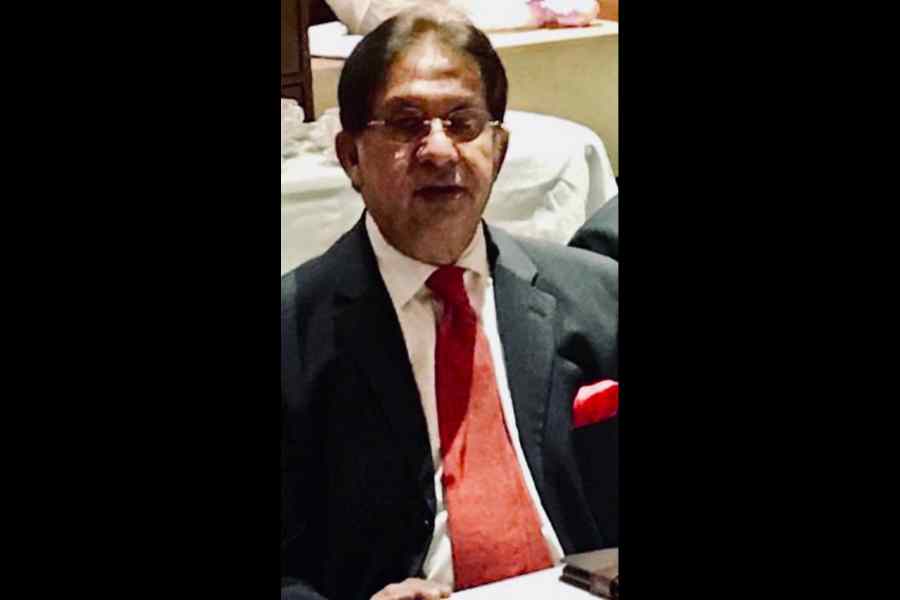Lexi Lonas
Sun, August 4, 2024

Students gearing up for round 2 of pro-Palestinian protests: ‘We’ve been working all this summer’
The pro-Palestinian activists who disrupted campuses across the nation are plotting their return for the new academic year.
Demonstrators say all forms of protest are still on the table, despite the more than 2,000 arrests so far, as students try to figure out a new strategy to demand their schools divest from Israel, among other goals.
“What we will see [is] the students will continue their activism, will continue doing what they’ve done in conventional and unconventional ways. So not only protests, not only encampments, kind of any — any available means necessary to push Columbia to divest from from Israel,” said Mahmoud Khalil, student negotiator on behalf of Columbia University Apartheid Divest.
“And we’ve been working all this summer on our plans, on what’s next to pressure Columbia to listen to the students and to decide to be on the right side of history,” Khalil added.
Students will be heading back into the classroom this month after a chaotic ending to the last academic year.
Dozens of schools across the country saw protests against the war in Gaza, including interruptions to multiple graduation ceremonies, and scores of students were suspended for their actions.
Since then, the war in Gaza has only escalated with thousands killed and no clear end in sight.
“There’s definitely conversations happening regarding how they can continue to advocate, to raise awareness about Palestinian human rights and genocide that’s happening in Gaza,” said Zainab Chaudry, director of the Council on American-Islamic Relations office in Maryland.
“And I think that there’s some students who already started planning over the summer. There have been some meetings that have been organized by some student leaders at different campuses to strategize ahead of the upcoming 2024-2025 academic year.”
“Just to strategize what are the boundaries and what are students’ options in terms of being able to continue to keep the pressure on administrations to divest,” Chaudry added.
Students have demanded their schools to divest from companies associated with Israel and release statements against the country’s actions in Gaza amid its war with Hamas, among other policy changes.
But over the summer, multiple schools, including Harvard University, have said they are no longer taking official positions on political issues, making such statements unlikely. And some schools have strengthened rules against campus encampments.
“I think the challenge for students is going to be how to raise awareness about different policies, different challenges for students, how to continue to advocate and raise awareness about different issues in light of these policies, and how much are they willing to push those policies to continue to advocate about the plight of Palestinians and the need to end the ongoing genocide,” Chaudry said.
Some student activists are still dealing with the penalties they face from their actions last school year.
“We have several students who are still suspended and some of them waiting for a hearing from the university. The university is not taking actions in any of these cases, really, so we have tens of students in limbo,” Khalil said. “They don’t know if they will be able to attend school next semester. They’re not sure if they can benefit from university housing, register for classes, any of that, and it has been, for some of them, it has been four months already.”
But he added that the fear of more repercussions isn’t stopping students from bigger plans to keep the Palestinian cause top of mind on their campuses.
“We’re considering a wide range of actions, throughout the semester, encampments and protests and all of that,” he said.
“But for us, encampment is now our new base, as in the past, it used to be protests. Students would do protests every day, but now, kind of, encampments is the new base for us. And I think the university should think really, really, really hard about about meeting our demands,” Khalil said, adding that along with encampments the students “have a big program of political education where we teach and reach out to students to raise awareness about what’s happening in Palestine.”
The Hill has reached out to Columbia University for comment.
Some pro-Palestinian activists did make gains last school year. Colleges including Brown University and Northwestern agreed to some of their demonstrators’ demands and said they would have a vote this fall on whether to divest from Israel.
The results of how these schools follow through on their promises will likely be a big influence for the protests.
“I think that students may look to those victories to continue to provide them with encouragement, so that they see the potential of what might be possible,” Chaudry said. “The students have tremendous amount of power on college campuses.”
Copyright 2024 Nexstar Media, Inc. All rights reserved. This material may not be published, broadcast, rewritten, or redistributed.
Pro-Palestinian demonstrators across Europe demand ceasefire in the Israel-Hamas war
Euronews
Sat, August 3, 2024

Pro-Palestinian demonstrators across Europe demand ceasefire in the Israel-Hamas war
Pro-Palestinian demonstrators took part in ceasefire rallies across Europe as the Israel-Hamas war passes 300 days.
Dozens of pro-Palestine demonstrators gathered in Paris on Saturday, demanding a solution to the ongoing war and calling for a boycott of Israel at the Olympic Games.
The protesters held banners calling for “sanctions against Israeli war criminals,” “Save Palestine” and “Stop the genocide of Palestinians.”

Protesters wearing keffiyehs and holding Palestinian flags sit on a bench during a gathering in support of Palestinian people in Gaza, in Paris, Saturday Aug. 3, 2024. - AP
Many also expressed anger at seeing Israel’s flag at the Paris Olympic Games.
Activists said Israeli athletes should have competed with a neutral status like those from Russia and Belarus following the invasion of Ukraine.
“My opinion is that Israel should not have anything to do with the (Olympic) Games,” said 59-year-old demonstrator Abdelali Mebarki. “Russians are taking part in the games without a banner, why not Israel as well?” he added.
A large crowd also gathered in central London on Saturday, demanding an end to the ongoing war.

Demonstrators march in support of Palestinians, in London, Saturday, Aug. 3, 2024. - AP
Protestors gathered at Hyde Park Corner and along Park Lane in Central London, unfurling a huge red line which they say symbolises the red lines Israel has crossed.
The protests took place as the death toll in Gaza reached 39,550, according to the Palestinian health ministry.
Fate of suspended University of Georgia students in air 3 months after Gaza protests
Fletcher Page
Sat, August 3, 2024

The April protest on the University of Georgia’s campus against Israel’s war in Gaza lasted less than two hours.
The suspension of six students, among 16 people arrested on the last day of spring semester classes, has dragged on more than three months.
And on Tuesday, a disciplinary code of conduct hearing to determine the students’ educational fate stretched more than 13 hours.
With fall classes beginning in two weeks, there still had been no resolution as of Wednesday afternoon.
UGA has maintained a hard stance from the beginning. The students have dug in their heels.
“I am, on paper, a stellar UGA student, consistently applauded for my integrity and leadership capabilities,” Ezra Lewis, a suspended landscape architecture major and honors college member, said during the hearing. “After all I’ve given to this university, the university has chosen to label me as a current and present threat to campus.”
Campus police quickly arrested protesters on April 29 after setting up an encampment not far from the office of university president Jere Morehead. UGA suspended the students hours later, while some were still in jail. After authorities released the students from custody, the university instructed faculty and staff to call 911 if they saw the students on campus.
Similar demonstrations were spreading on college campuses around the country. Georgia’s flagship public university moved to shut them down more quickly than elsewhere.
“Send a message: We are not going to allow Georgia to become the next Columbia University,” Gov. Brian Kemp told reporters after the arrests and suspensions.
Subsequent demonstrations on UGA’s campus fizzled and a protest later that week was held off campus. Graduation went off without a hitch at Sanford Stadium, unlike at some other colleges, including Emory University, a private Atlanta university that moved its commencement off campus following protests.
UGA administrators wrote in a public letter in early May that protesters “chose to be arrested” by ignoring campus rules governing demonstrations. But a petition signed by at least 180 faculty and staff called the suspensions “unwarranted and antithetical to our educational mission.”
On Tuesday, Dr. K. Chad Clay, associate professor in UGA’s Department of International Affairs, testified at the hearing at Memorial Hall on campus that he felt the “suspensions should be removed at this time, and (the students) should be allowed to complete their education.”
Some suspended UGA students agreed to an informal resolution by acknowledging the violations and accepting responsibility, according to two people familiar with the matter.
But the other six students have remained resolute.
They opted to bring the case to a panel made up of two UGA students and one faculty member.
Already, one of the students was unable to complete coursework and graduate in May. Another managed to finish classes for her degree but was unable to attend commencement. Others said they will no longer graduate when previously planned and lost scholarships. Lewis said she lost housing and her job on campus as a resident assistant.
Now they face expulsion among the list of potential sanctions listed in the UGA Code of Conduct if the panel finds them in violation of campus policies.
Still, each of the six spent time during Tuesday’s hearing reiterating their views on the Israeli–Palestinian conflict, criticizing Israel.
The panelists representing UGA stated they weren’t there to make judgments on political and social views.
They argued that the encampment endangered police officers and students, and disrupted campus operations. They said students had ample warning to disperse.
“This demonstration was in in clear violation of the university’s freedom of expression policies,” said Mehar Nemani, a political science major and student advocate on the UGA panel.
The suspended students presented their own testimony and witnesses. They were helped by lawyers working pro bono.
“There’s no evidence that our actions disrupted any academic activities or put any other person in danger,” said Lauren Heinze, a senior who said she was unable to graduate in May due to the suspension. “In fact, the university put us in danger by sending dozens of armed police officers to break up a peaceful demonstration.”
Tuesday’s hearing began at 9 a.m. and ended at 10:06 p.m. There were recesses for lunch and dinner and frequent breaks when students conferred with their lawyers or the panel discussed procedural decisions.
It wasn’t the longest code of conduct hearing in UGA’s history, a spokesperson said.
“Whatever the outcome for (this) proceeding,” said suspended graduate student and teaching assistant Austin Kral, “I would not change a thing.”




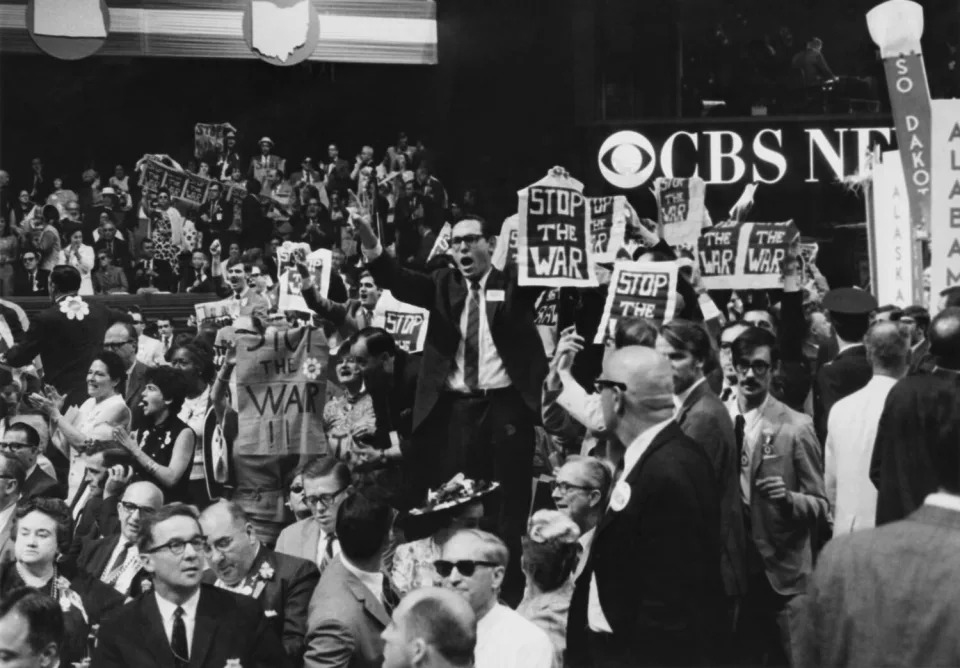


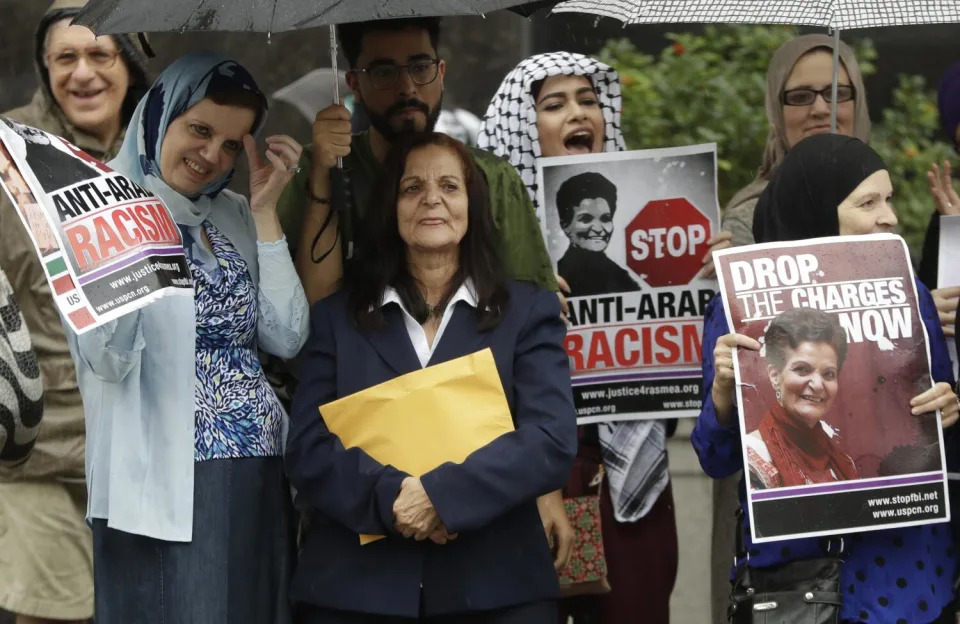



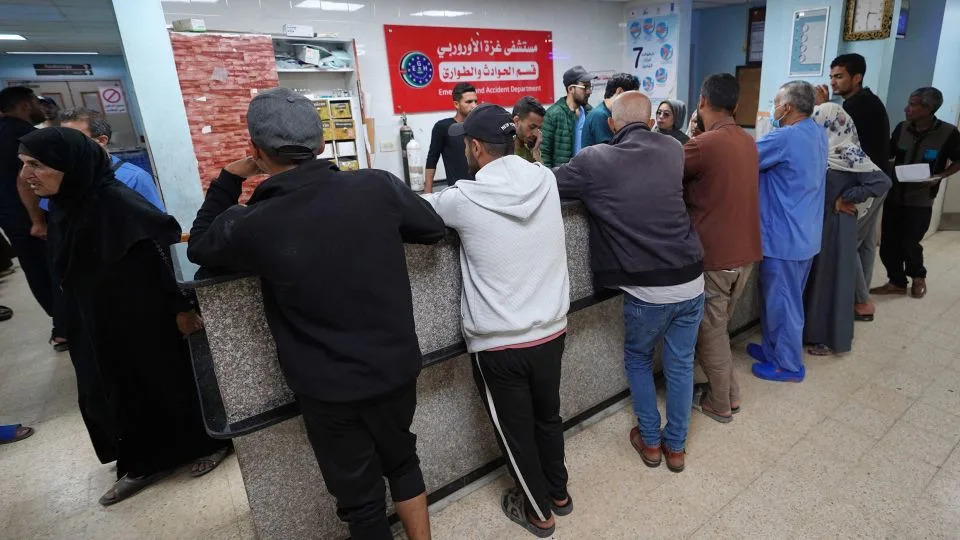










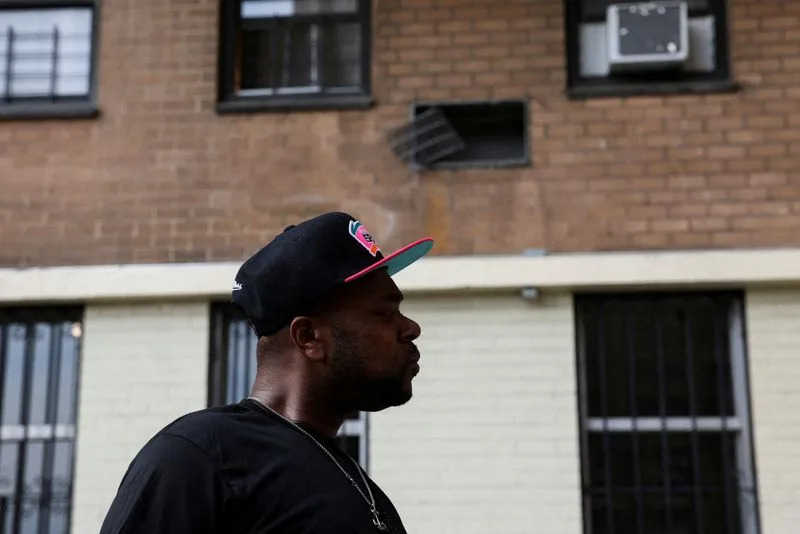



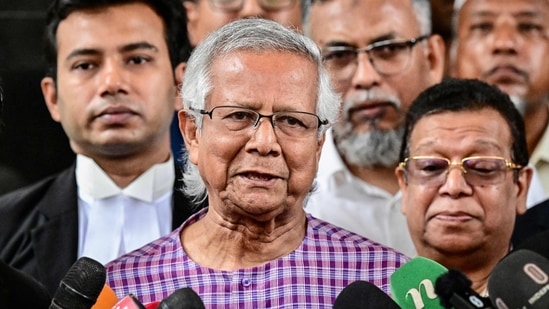 Nobel peace laureate Muhammad Yunus (C) speaks to the media after filing an appeal for the extension of his bail (File image)(AFP)
Nobel peace laureate Muhammad Yunus (C) speaks to the media after filing an appeal for the extension of his bail (File image)(AFP)_Cropped_0.jpg)
